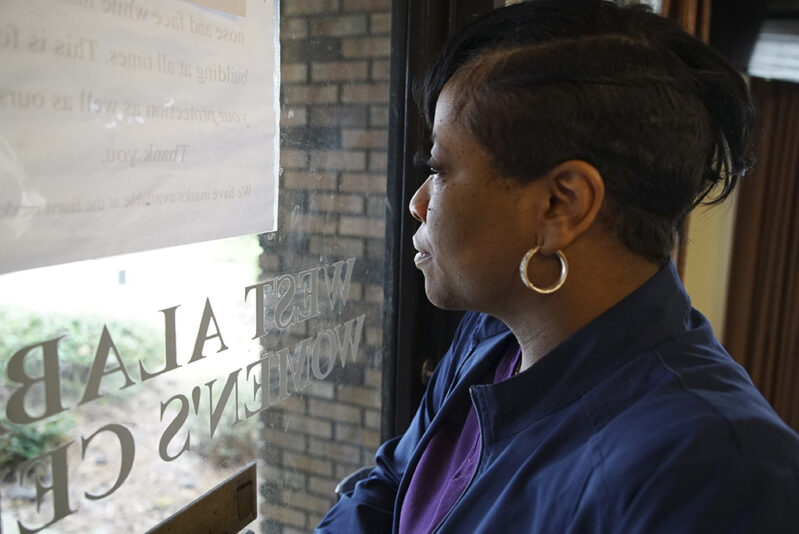National writers Claire Galofaro and Martha Irvine set out to explore the abortion rights resistance — dedicated advocates for abortion access who are grappling with what is expected to be a wave of women seeking abortions as the U.S. Supreme Court takes aim at Roe v. Wade and states tighten restrictions, pushing pregnant people farther from home — some hundreds of miles away. In so doing, they broke down some of the stereotypes in the pitched abortion debate.
The seed for two stories was a conversation Galofaro had with an abortion activist in Louisville, Kentucky, who mentioned she was working with colleagues in blue states to create a pipeline for people if Roe were to fall and clinics in most of the South and Midwest must close.
That started the AP pair reporting on this growing network of women so passionate about abortion rights they’re willing to risk jail to make sure people have access to abortions. Galofaro and Irvine interviewed more than a dozen people, trying to find the best subjects to tell the story, and discovered the network is based on long-term friendships forged in fighting abortion bans.
The duo settled on Alison Dreith, who works with a Midwest coalition providing “practical support” for women seeking abortions. Galofaro and Irvine spent days on Dreith’s Missouri farm, shadowing her as she fielded calls on a hotline used by women desperate for help. Enterprise photo editor Maye-E Wong coached the the journalists to assemble a gallery of resisters’ portraits, and digital storyteller Dario Lopez produced the engaging all-formats presentation.

Alesia Horton, director of the West Alabama Women’s Center in Tuscaloosa, Ala., looks out the window at protesters, March 15, 2022. A deeply religious woman, she says of those who picket the clinic: “God isn't theirs. God is all of ours.”
P Photo / Allen G. Breed
Galofaro also visted Tuscaloosa, Alabama, where Dreith’s close friend runs an abortion clinic. There she found clinic employees of deep religious faith who have no trouble reconciling their work with their religion, altering preconceptions about the religious divide over abortion and providing a strong companion piece to the initial story.
Both stories won wide use. The Alabama story was among the week’s leaders for reader engagement and prompted much response, including one writer who said, “I was ready to hate the story as another vehicle to air grievance. But you completely won me over with the subtlety, balance, deft interviewing and gorgeous, restrained writing. We need more of this kind of work.“

Women who are part of a nationwide network of abortion advocates, mobilizing to ensure women have access to abortions. Top, from left: Pamela Merritt, executive director of Medical Students for Choice in southern Illinois; Kawanna Shannon, director of patient access at Planned Parenthood of the St. Louis Region and Southwest Missouri in Fairview Heights, Illinois; and Robin Marty of the West Alabama Women’s Center. Bottom, from left: Dr. Colleen McNicholas, chief medical officer at Planned Parenthood of the St. Louis Region and Southwest Missouri; Diana Parker-Kafka, executive director of the Midwest Access Coalition in Chicago; and Dr. Leah Torres of the West Alabama Women’s Center in Tuscaloosa, Ala.
AP Photos / Martha Irvine and Allen G. Breed





